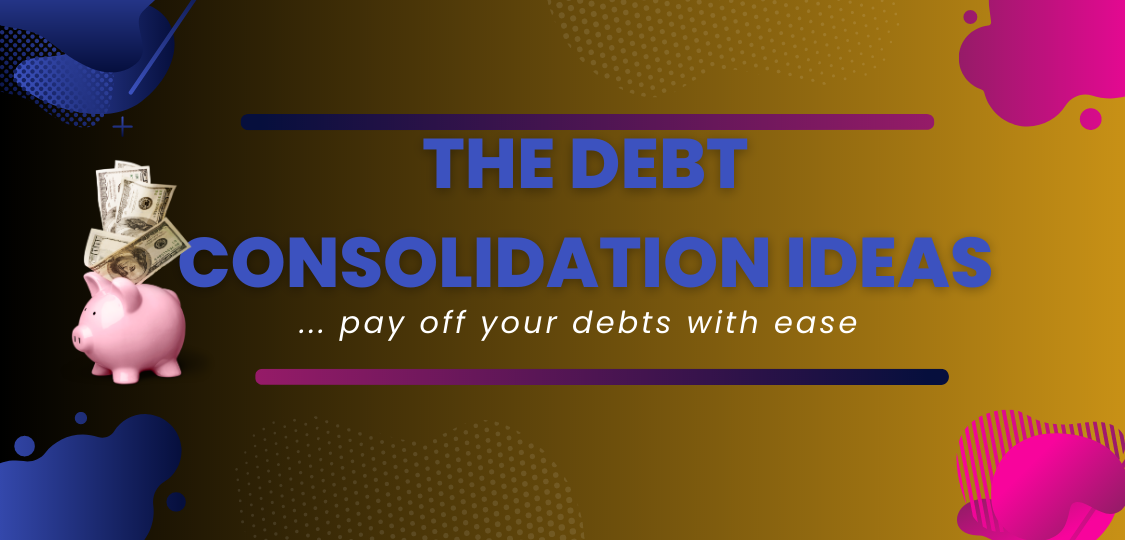Introduction
Struggling with multiple debts and a less-than-perfect credit score? You’re not alone. Millions face the same challenge—and in 2025, there are debt consolidation loans for bad credit that can help you simplify payments, reduce interest, and take control of your financial future.
In this comprehensive guide, we’ll explore the best debt consolidation loans for bad credit in 2025, including top lenders, what to look for, and how to qualify even with a low credit score.
What Is a Debt Consolidation Loan?
A debt consolidation loan is a personal loan used to pay off multiple debts—such as credit cards, medical bills, or payday loans—by combining them into a single monthly payment with a fixed interest rate and term.
✅ Benefits:
-
Simplified repayment
-
Lower monthly payments
-
Fixed interest rates
-
Boost to credit score (if managed well)
Can You Get a Debt Consolidation Loan with Bad Credit?
Yes! While it may be harder to qualify with traditional banks, many online lenders specialize in helping people with credit scores under 600.
You may not get the lowest interest rate, but you can still get:
-
Lower payments
-
Predictable terms
-
A chance to rebuild your credit
Top 5 Best Debt Consolidation Loans for Bad Credit in 2025
Here are the most trusted lenders offering debt consolidation loans for people with poor or fair credit:
1. Upgrade
-
Minimum Credit Score: 560
-
Loan Amount: $1,000 – $50,000
-
APR: 8.49% – 35.99%
-
Terms: 24 – 84 months
-
Pros: Fast funding, direct payment to creditors, soft credit check
Why it’s great: Upgrade is one of the few lenders offering direct payments to your creditors, making debt consolidation automatic and stress-free.
2. Avant
-
Minimum Credit Score: 550
-
Loan Amount: $2,000 – $35,000
-
APR: 9.95% – 35.99%
-
Terms: 12 – 60 months
-
Pros: Flexible terms, easy online application
Why it’s great: Avant is ideal for borrowers with very poor credit, offering one of the lowest minimum score requirements on this list.
3. LendingClub
-
Minimum Credit Score: 600
-
Loan Amount: $1,000 – $40,000
-
APR: 8.98% – 35.99%
-
Terms: 36 or 60 months
-
Pros: Joint applications allowed, fast approval
Why it’s great: LendingClub allows co-borrowers, which can help you qualify for a better rate if you have a creditworthy partner.
4. OneMain Financial
-
Minimum Credit Score: No minimum
-
Loan Amount: $1,500 – $20,000
-
APR: 18.00% – 35.99%
-
Terms: 24 – 60 months
-
Pros: In-person branches, secured loan options
Why it’s great: OneMain offers secured personal loans, which can help you get approved with bad credit if you provide collateral.
5. Upstart
-
Minimum Credit Score: 580
-
Loan Amount: $1,000 – $50,000
-
APR: 6.40% – 35.99%
-
Terms: 36 or 60 months
-
Pros: AI-powered approval, quick funding
Why it’s great: Upstart uses more than your credit score (like education and employment) to assess your application—great for borrowers with thin credit files.
What to Look for in a Debt Consolidation Loan
When comparing loans, focus on the following:
| Factor | Why It Matters |
|---|---|
| APR | Determines your total cost of borrowing |
| Origination Fees | Can be 1%–10% of loan amount |
| Loan Term | Shorter terms = less interest paid overall |
| Funding Time | Some lenders offer same-day or next-day funding |
| Direct Creditor Payments | Avoids temptation to spend funds elsewhere |



